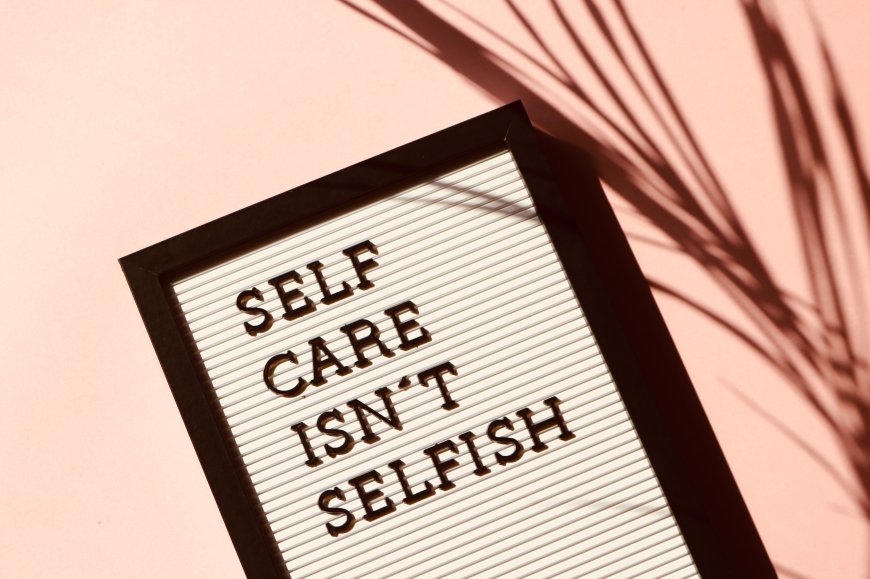How To Make Sure You Are Taking Care Of Your Mental Health
Mental Health, one of the most crucial part, still ignored. Here are some tips on ensuring you care for your mental health....

Mental health is a crucial aspect of overall health and well-being. Taking care of your mental health is essential for your happiness and productivity, relationships, and quality of life. With the ongoing pandemic and its aftermath, prioritizing mental health is more important than ever. Here are some tips on ensuring you care for your mental health.
Prioritize self-care
Self-care is any activity that helps you manage your physical, mental, and emotional health. It can be as simple as taking a warm bath, walking, or practicing meditation. Self-care reduces stress, improves mood, and enhances overall well-being. Make sure to set aside time each day for self-care activities that you enjoy.
Get enough sleep
Sleep is crucial for both physical and mental health. Lack of sleep can lead to mood swings, irritability, and difficulty concentrating. Aim for 7-9 hours of sleep per night and establish a consistent sleep routine. Avoid screens before bedtime, create a relaxing environment in your bedroom, and avoid caffeine and alcohol.
Exercise regularly
Regular exercise is beneficial not only for physical health but also for mental health. Exercise releases endorphins, which are natural mood boosters and can help reduce symptoms of anxiety and depression. Aim for 30 minutes of moderate-intensity exercise, such as brisk walking or cycling, five times weekly.
Connect with others
Human connections are crucial for mental health. Spending time with friends and family can help reduce stress, increase happiness, and provide a sense of belonging. Reach out to loved ones regularly, join a community group, or take up a new hobby that allows you to connect with others.
Practice gratitude
Practicing gratitude is a simple yet powerful way to improve mental health. Take time each day to reflect on what you are grateful for, such as good health, supportive relationships, or simple pleasures like a beautiful sunset. Gratitude can help reduce stress, increase positivity, and improve overall well-being.
Manage stress
Stress is a natural part of life, but excessive stress can have a negative impact on mental health. Learning to manage stress is essential for maintaining good mental health. Deep breathing, meditation, and mindfulness can help reduce stress and promote relaxation. Identify your stress triggers and develop a plan to manage them when they arise.
Seek professional help
If you are struggling with mental health issues, it is important to seek professional help. Mental health professionals, such as therapists, counselors, or psychiatrists, can provide support, guidance, and treatment for various mental health issues. Don't hesitate to reach out for help if you need it.
Avoid unhealthy coping mechanisms
Unhealthy coping mechanisms, such as alcohol or drug use, can have a negative impact on mental health. These coping mechanisms may temporarily relieve stress or emotional pain but can lead to addiction, health problems, and other issues. Instead, seek healthy coping mechanisms like exercise, meditation, or therapy.
Take breaks
In today's fast-paced world, it is easy to get caught up in the hustle and bustle of daily life. Taking regular breaks is essential for mental health. Schedule breaks throughout the day to rest, relax, and recharge. Whether taking a walk, listening to music, or reading a book, take time for yourself.
Be kind to yourself
Finally, be kind to yourself. Self-compassion is essential for good mental health. Don't be too hard on yourself, and practice self-care regularly. Treat yourself with the same kindness and compassion you would offer a friend.
Set boundaries
Setting boundaries is essential for good mental health. Boundaries can include saying no to requests you don't have the time or energy for, setting limits on social media and technology use, and prioritizing self-care.
In conclusion, taking care of your mental health is essential for your overall well-being. Incorporating these tips into your daily routine can help improve your mental health and lead to a happier, more fulfilling life. Remember to seek professional help if you are struggling, and practice self-care regularly.











